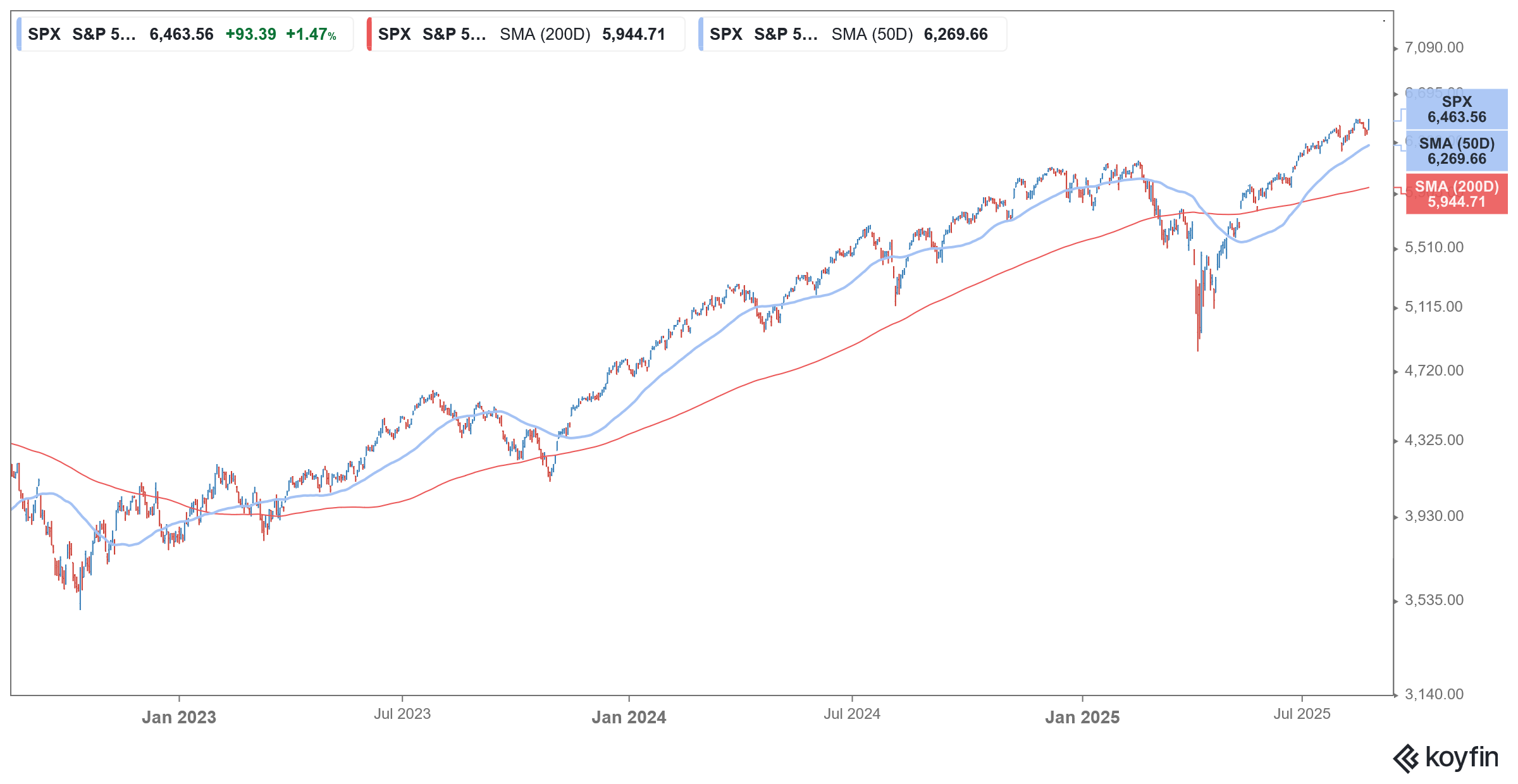Stocks Rally as Jerome Powell Suggests Rate Cuts In Jackson Hole Speech
Please note that we are not authorised to provide any investment advice. The content on this page is for information purposes only.
US stocks are rallying today after Fed chair Jerome Powell indicated rate cuts during his speech at the annual Jackson Hole Economic Symposium.
Powell Indicates Rate Cuts
The address, titled “Monetary Policy and the Fed’s Framework Review,” highlighted a “challenging situation” where risks to inflation remain tilted to the upside while employment faces increasing downside risks. This dual threat, Powell explained, may warrant an adjustment to the current restrictive policy.
“With policy in restrictive territory, the baseline outlook and the shifting balance of risks may warrant adjusting our policy stance,” said Powell at his annual address.
Fed’s Minutes Showed Members See Inflation as a Risk
Meanwhile, Powell’s changed stance took the markets by a bit of surprise as the minutes of the Fed’s July meeting showed that Fed officials are divided on rate cuts. “Participants generally pointed to risks to both sides of the Committee’s dual mandate, emphasizing upside risk to inflation and downside risk to employment,” said the minutes.
They added, A majority of participants judged the upside risk to inflation as the greater of these two risks, while several participants viewed the two risks as roughly balanced, and a couple of participants considered downside risk to employment the more salient risk.”
While President Donald Trump believes otherwise, Powell has said several times that the tariffs would have an inflationary impact. The Fed’s July meeting minutes echoed Powell’s stance and said, “Regarding upside risks to inflation, participants pointed to the uncertain effects of tariffs and the possibility of inflation expectations becoming unanchored.”
Notably, Trump has been critical of economists who believe his tariffs are inflationary and would mostly be borne by the US consumer.
Trump Says His Tariffs Are Not Inflationary
Trump has publicly and sharply criticized Goldman Sachs and its CEO, David Solomon, following a report from the financial giant that analyzed the economic impact of the administration’s tariff policies. The rebuke, delivered on Truth Social, accused the bank of making “bad predictions” and suggested that Solomon should “focus on being a DJ” instead of running a major financial institution.
The core of the dispute lies in a Goldman Sachs research note, which suggests that the burden of the President’s tariffs is being disproportionately shouldered by American businesses and consumers, rather than foreign exporters. The report found that while U.S. businesses and consumers have absorbed a significant portion of the costs to date, American consumers’ share of the tariff burden is projected to increase substantially over time.
Who Pays for Trump’s Tariffs?
This analysis directly contradicts a key tenet of the President’s trade policy, which has consistently argued that foreign countries are paying for the tariffs. In his post, the President reiterated his long-held position that “trillions of dollars” are flowing into the US Treasury, and that tariffs have not caused inflation or other problems for the American economy. He insisted that the costs are being picked up by “companies and governments, many of them foreign.”
Meanwhile, the recent inflation data has been mixed. July Consumer Price Index (CPI) rose at an annualized pace of 2.7%, which was similar to June and below the 2.8% that economists were expecting. However, the July Producer Price Index (PPI) jumped 0.9% from the previous month, marking the fastest monthly increase in the PPI since March 2022 and far surpassing economists’ forecasts of a mere 0.2% rise. The annual rate of wholesale inflation climbed to 3.3%, also exceeding expectations and hitting a five-month high.
Trump Has Criticized Powell
Notably, the Fed was under pressure from President Trump to cut rates. President Trump has been quite critical of Powell and has called for rates to be slashed to 1% which would help lower the borrowing costs. Notably, interest payments are now the second biggest constituent of Federal expenditure, and the US government is expected to pay over $1.2 trillion as interest on its national debt, which has surpassed $36 trillion.
While Trump appointed Powell as the Fed chair, the relations between the two were quite fraught as Powell raised rates during Trump’s presidency, much to his displeasure. In a 2019 tweet, Trump questioned whether Powell or Chinese President Xi Jinping was “our bigger enemy.”
In 2022, Joe Biden reappointed Powell as the Fed chair for four years, and his current tenure would last until mid-2026. Last year, Powell indicated that he would serve his entire tenure while saying that U.S. presidents are “not permitted under the law” to fire members of the Fed.
Trump has admonished Powell several times for not cutting rates. Earlier this month, he threatened to sue Powell over what he has alleged are irregularities in the construction of the Fed’s headquarters.
Powell Denies Any Political Interference
Powell, meanwhile, denied any political interference in its decisions and stressed its independence. “FOMC members will make these decisions, based solely on their assessment of the data and its implications for the economic outlook and the balance of risks. We will never deviate from that approach,” said Powell.
He also reiterated the Fed’s commitment to its 2% inflation target and said, “We believe that our commitment to this target is a key factor helping keep longer-term inflation expectations well anchored.”






